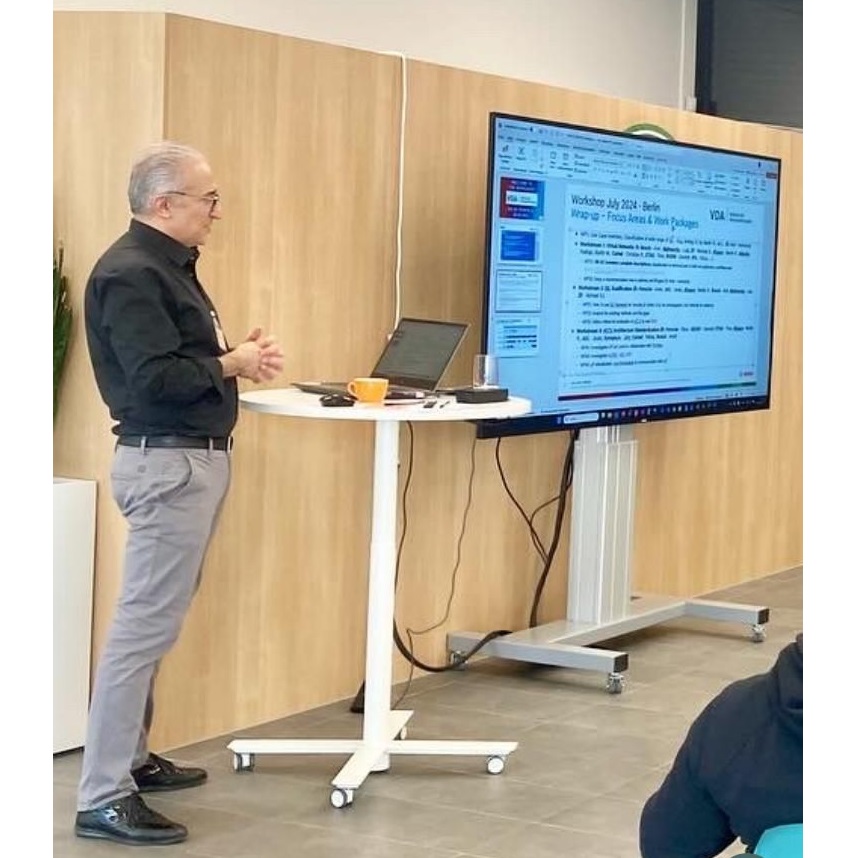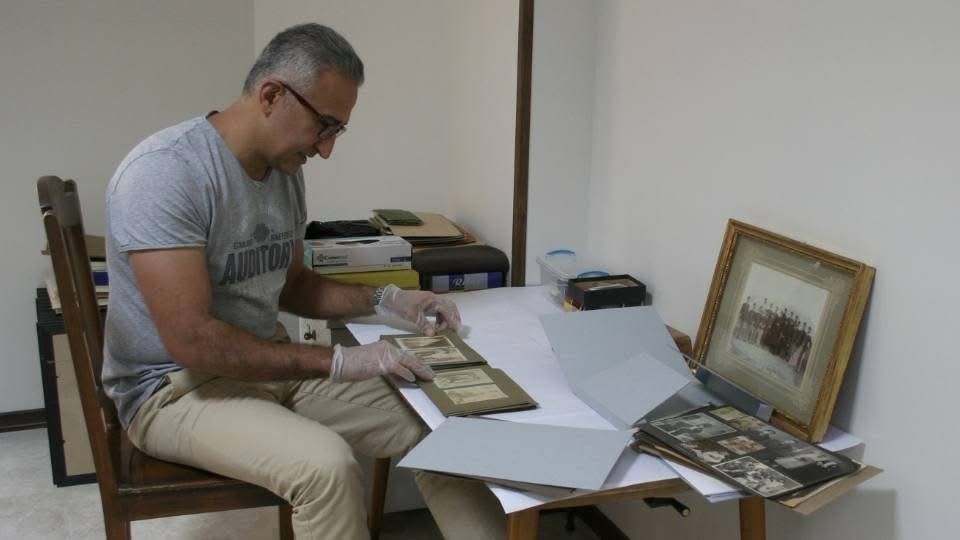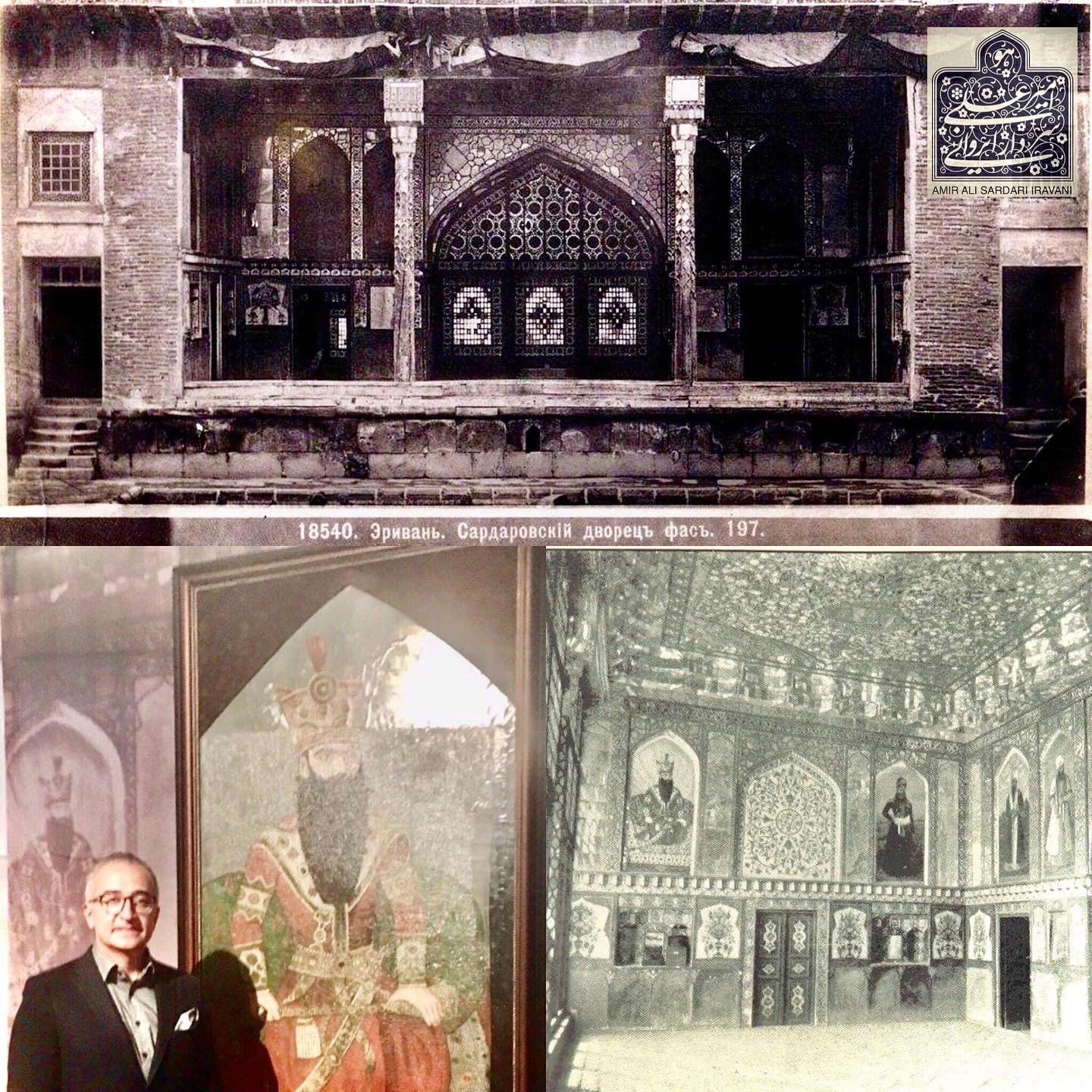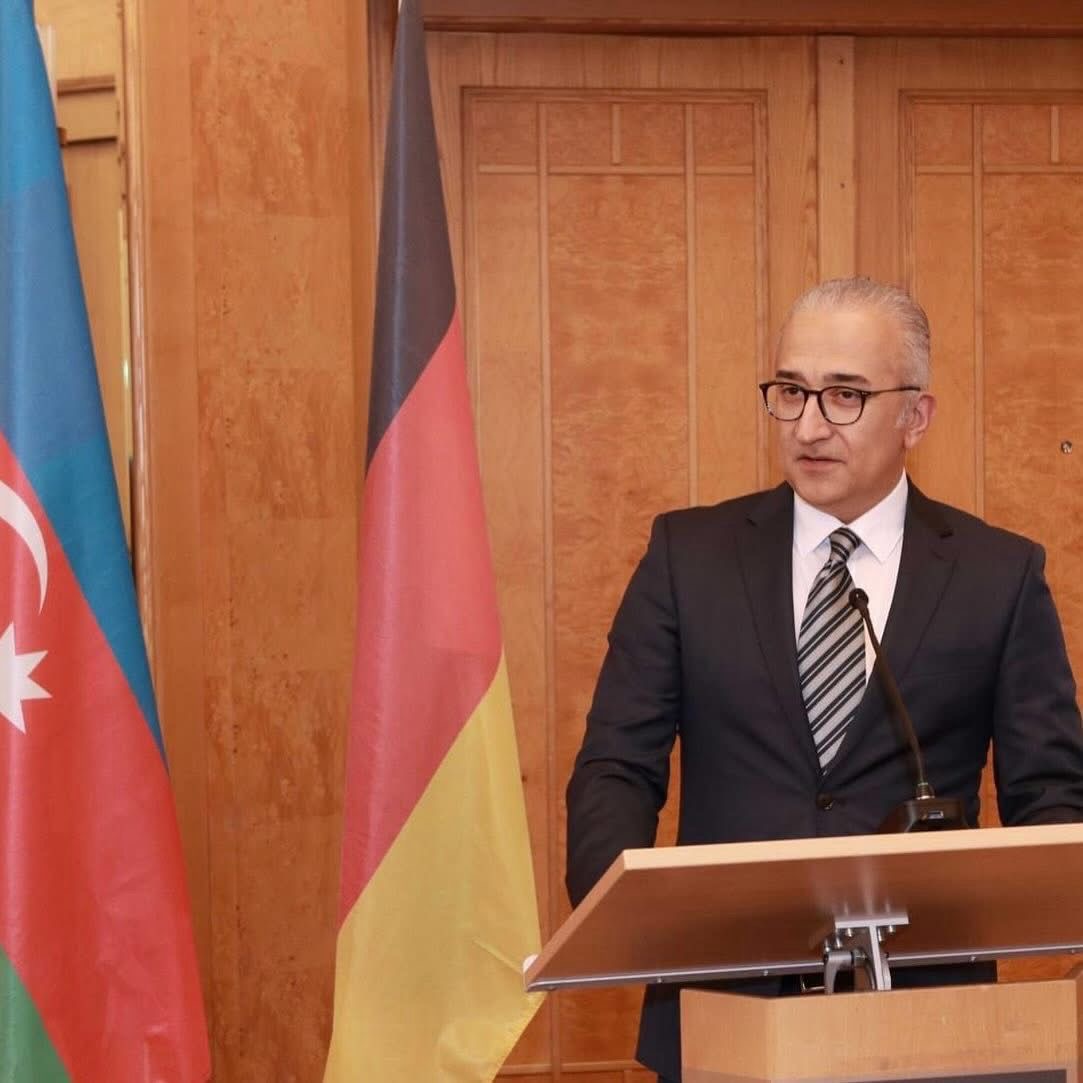Trend News Agency presents an interview with Amir Ali Sardari (Iravani), a famous Azerbaijani living in Germany, a representative of the Iravan Khan dynasty, ethnographer and historian, Senior expert, engineering project manager at Robert Bosch, the world's largest automotive supplier:
What brought you to Germany?
My decision to come to Germany in 2003 was driven by both professional ambition and a deep personal desire for growth. At that time, I was already a trained electrical engineer with several years of experience, but I felt a strong urge to advance my knowledge and challenge myself in a new environment. Germany, with its globally recognized engineering education and its reputation as a hub for cutting-edge technology and industrial innovation, was the natural choice. I was 28 years old when I arrived—full of energy, curiosity, and a vision for my future. My primary goal was to continue my education in electrical engineering at a higher academic level and gain insights that would not only enhance my technical skills but also broaden my perspective through exposure to a different academic and industrial culture.

How do you remember your years of studying in Germany?
Looking back, my years as a student in Germany were some of the most formative of my life. They were marked by hard work, personal growth, and a deep sense of independence. I enrolled in a technical university and completed my Diplom-Ingenieur degree in 2008. Unlike many of my peers, I did not have any financial or institutional support during my studies—I financed my entire education on my own. This was not always easy, but it taught me resilience, discipline, and how to prioritize my goals under pressure. I often worked part-time jobs alongside my studies, and every challenge I faced made me stronger and more self-reliant. Those years also gave me a deeper appreciation for the German education system, which, while rigorous, provided a solid foundation for a successful career.
Tell us about your professional journey and career in Germany. The German automotive industry has always been an exciting and advanced field. What steps did you take to enter and succeed in this sector?
After graduating, I initially considered pursuing a PhD, as academic research had always interested me. However, I quickly realized that my passion leaned more toward real-world application and innovation within industry rather than staying in the academic realm. The German automotive industry, known for its high standards, global impact, and dynamic environment, was especially appealing to me.
I joined a company in the automotive sector shortly after completing my degree, and I’ve been with the same organization ever since. Over the years, I’ve worked in a wide range of roles and projects, gradually building both technical expertise and leadership experience. My journey has taken me through areas such as embedded systems, systems engineering, product development, and now strategic project management. I currently serve as a technical specialist and project manager for a cross-industry initiative coordinated by the German Association of the Automotive Industry (VDA). It’s a role that requires not only technical depth but also the ability to coordinate across companies and drive collaborative innovation on an industry-wide scale. I believe my success stems from a combination of persistence, adaptability, and a continuous desire to learn and evolve.

Who supported you during your education and later in your career?
One of the defining aspects of my journey is that I have walked this path largely on my own. I received no financial support, scholarships, or mentorship during my education. Every step—from relocating to Germany, learning the language, navigating the education system, to finding my place in a highly competitive industry—was the result of my own initiative and determination. While this made the journey more difficult at times, it also instilled in me a strong sense of independence and confidence. I’m proud of having built everything from the ground up, and I believe that overcoming these early challenges helped shape the professional and person I am today.
You are known to support young engineers as well. One example is your participation in conferences such as MathWorks 2023. How does it feel to share your knowledge and experience? Are you planning to become a lecturer? How do you see the next generation in this field?
Contributing to the professional development of the next generation is something I truly value. I regularly participate in conferences and technical events where I have the opportunity to share my expertise and insights, especially in areas like Software / Hardware systems engineering, software-in-the-loop (SiL), and industry standards. I have been actively involved in conferences, which were excellent platforms to engage with young professionals and academic researchers alike.
In the past, I received invitations to teach at academic institutions but due to the demands of my professional role and a very busy schedule, I had to respectfully decline. At the moment, I don’t plan to pursue a formal teaching position, but I remain open to mentoring and guest speaking opportunities when they align with my field and schedule.
What are your thoughts on the current and future state of the German automotive industry?
The future of the automotive industry is undoubtedly complex and full of uncertainty. We are experiencing a period of profound transformation driven by technological innovation, changing customer expectations, regulatory shifts, and the global push toward electrification and sustainability. At the same time, development costs are rising, and competition from other regions—particularly Asia and North America—is intensifying.
That said, I remain confident in the German automotive sector. It has a long history of resilience and innovation and has continually reinvented itself in response to disruptive change. The current shift toward software-defined vehicles, digital ecosystems, and decarbonization presents enormous challenges, but also tremendous opportunities. I believe Germany will continue to play a leading role in shaping the future of mobility, and I am proud to contribute to this ongoing transformation.
Ethnography and history are among your hobbies. We know that you are researching the history of the Khanate of Iravan. Isn’t it difficult to pursue this research from Germany, given the distance?
Indeed, one of my deepest personal passions is the exploration and documentation of the history of my ancestors, especially the heritage of the Khanate of Iravan and the broader region of Western Azerbaijan. This is more than a hobby for me—it’s a meaningful mission to preserve and share a rich cultural history that is often overlooked or misunderstood.
Despite living in Germany, I maintain an active international network of historians, scholars, and researchers who collaborate with me on these topics. I frequently travel to Azerbaijan to participate in academic events, conferences, and historical site visits. Additionally, the digital age has made it possible to conduct a great deal of research online, attend virtual conferences, and exchange ideas with peers around the world instantly. Distance is no longer a limitation when you have the passion and tools to connect globally.
Over the years, my efforts in this field have resulted in a number of valuable findings, which I continue to share with both academic circles and the broader public.

Sardar Palace in Iravan, early 20th century
Do your friends in Germany know about your aristocratic background? If so, how do they respond?
Some of my close friends are aware of my historical background and the aristocratic lineage of my family. Their reaction is usually one of curiosity and respect, and I deeply appreciate the encouragement I receive from them regarding my historical work. However, I don’t openly share this part of my identity with everyone—not because I want to hide it, but because I want to avoid any misunderstanding or the impression that I’m seeking attention or special treatment.
I believe in humility and substance, and I let my actions speak for themselves. That said, I do consider it important to raise awareness, especially when it comes to cultural and historical heritage. This year, I was elected to the board of the German-Azerbaijani Alliance in Germany. In this role, I will actively organize and participate in public events and conferences aimed at informing international audiences about the cultural and historical heritage of Western Azerbaijan.
Furthermore, I am an honorary member of the West Azerbaijan Community and will regularly contribute to initiatives that promote our historical rights and identity. It is my belief that heritage and history are not only about the past—they are also tools for building mutual understanding and creating a more informed and respectful future.






